Are you apathetic about action points? Does the “End Turn” button fill you with ennui? From chess to Hearthstone, turn-based games have always relied on passing back and forth until somebody wins. More and more, though, developers are starting to explore what exactly a “turn” can be. Some of our selections redefine what a player does during a turn, and others toy with the concept of taking your turn altogether. Read on to see which games are giving turn-based gameplay new life and new ideas.
Seeing the Future (Into the Breach)
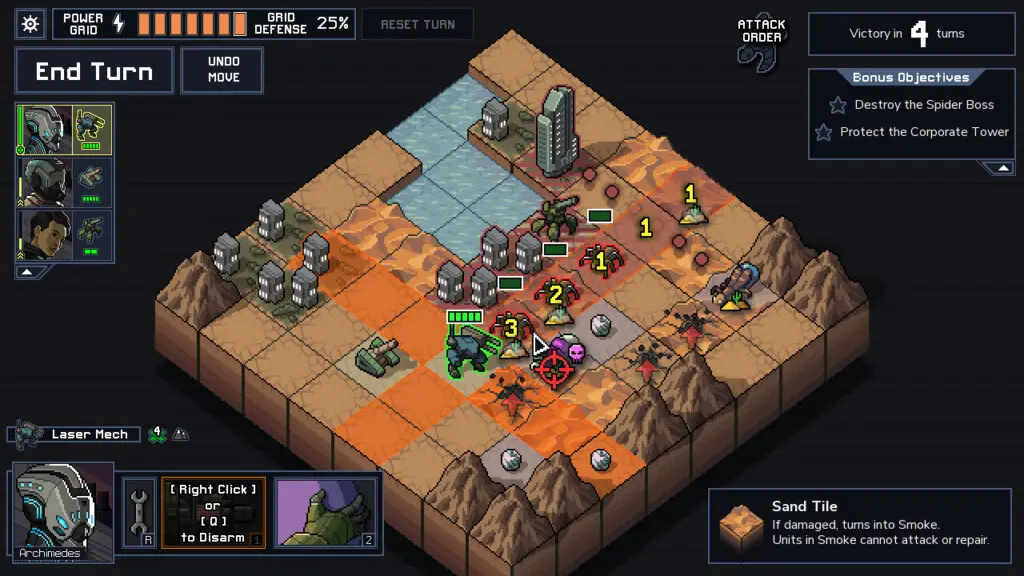
While Into the Breach maintains a fairly standard turn-based structure, it takes the bold step of allowing the player to see what moves the enemy will make when their turn comes around. This extra layer of information changes the gameplay to be as much about damage control as it is about efficiently eliminating enemy units. Charging one of your mechs forward might finish off a wounded monster, but if that results in your star pilot being killed, well, then you only have yourself to blame. The tension in the game shifts from wondering what the enemy will do to wondering how you’re going to survive the attack you know for a fact is coming.
It’s one thing to come up with a cool game mechanic, but it’s quite another to build an entire game around that mechanic in a way that’s balanced, challenging and compelling. Into the Breach managed to tick all three boxes. Team composition focuses on exploiting the player’s knowledge of the future, encouraging strategic use of immunities, forced moves and unit synergy to get the job done. This kind of turn structure is really only possible in single-player, but it opens up a world of possibilities within that realm. Get it here
Nothing Is Free (KARDS: The World War II Card Game)
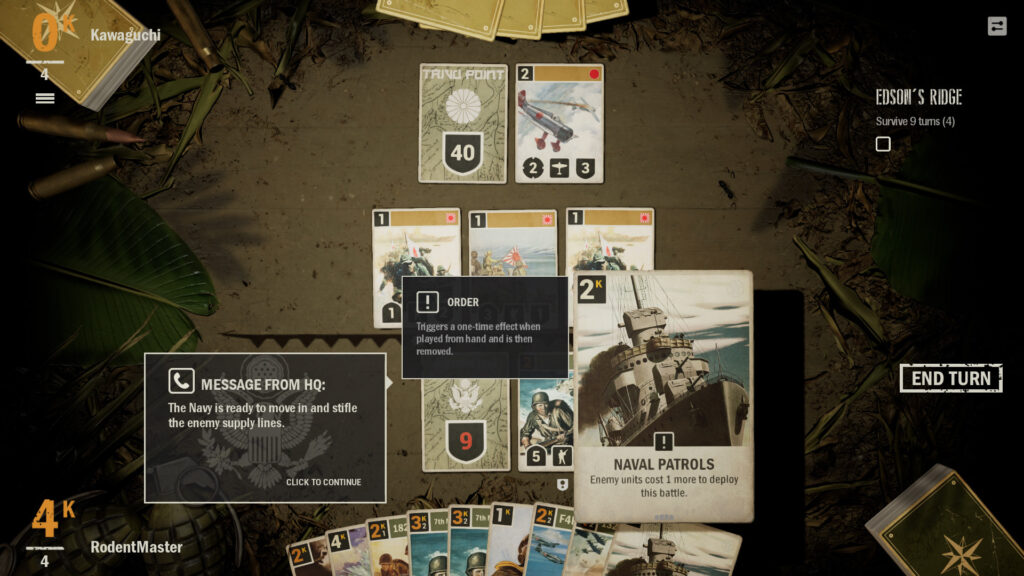
Another game that tweaks the traditional turn-based formula without deviating too far from the norm is KARDS, an online head-to-head card game set during World War II. Players familiar with the genre will ease right in – each turn, players have progressively more resources (called Kredits this time around) with which to play cards. Where KARDS differs is that moving or attacking with your units also costs Kredits. This means that playing lots of cards from your hand means you won’t be able to attack, or could leave an opening for your opponent.
This being a card game, there are of course all sorts of ways to reduce those activation costs, and high-level strategy often relies on it. Nothing being free also levels the playing field when a player brings in their heavy hitters; a B-29 or a Tiger tank are expensive both to deploy and to operate, giving the opponent time to potentially come up with a counter. Get Kards on Steam
Turns Are Time (Slipways)
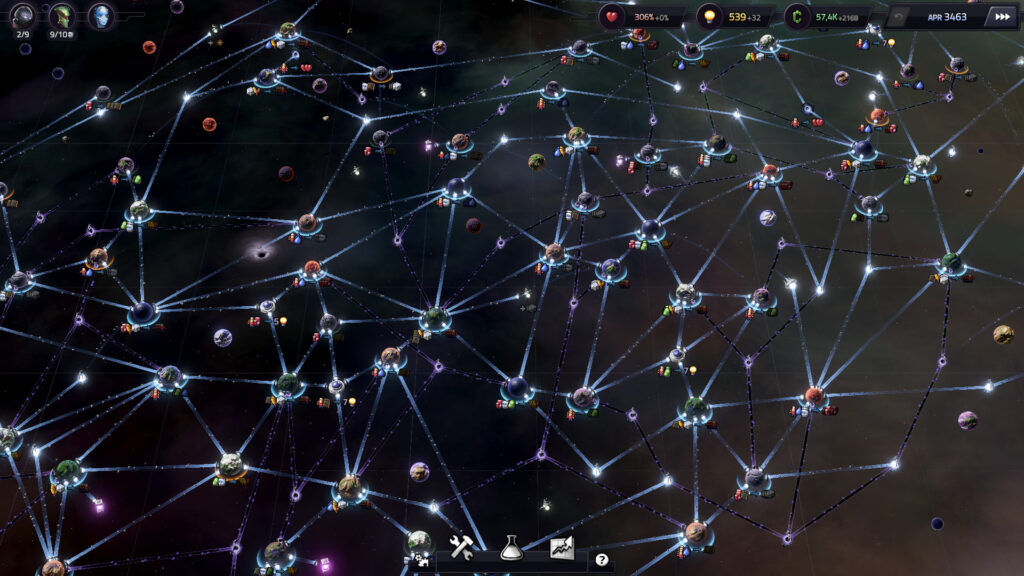
Slipways is a chill game about building an interstellar trade network by establishing the titular star-lanes between planets. With no enemies to battle, the player’s only concern is keeping their growing empire viable and profitable. Each run consists of exactly 25 in-game years, but time only progresses when you take an action so you can plot and plan for as long as you need before making your next move.
What sets Slipways apart in terms of turn structure is that each action the player can take uses up a different amount of your allotted time. Building a slipway to connect two planets takes only one month, but settling a new world takes three. Establishing a space station or starting a project to specialize one of your colonies can take different lengths of time as well. Timing your builds in relation to one another is key, since you only collect income in January of each year. However you use your time, once the 25 years are up the game ends and your score is assessed.
This would be a great mechanic on its own, but Slipways goes further, allowing the player to research advanced technology including time manipulation. A player who needs more time to get that last big network finished can reduce the number of months certain actions take, or even add a thirteenth month to all remaining years in the game! The fact that an individual run only clocks in at one to two hours in the real world means there are plenty of chances to build a thriving empire in just a quarter of a century. Get Slipways on Steam
Ticks and Cooldowns (Othercide)
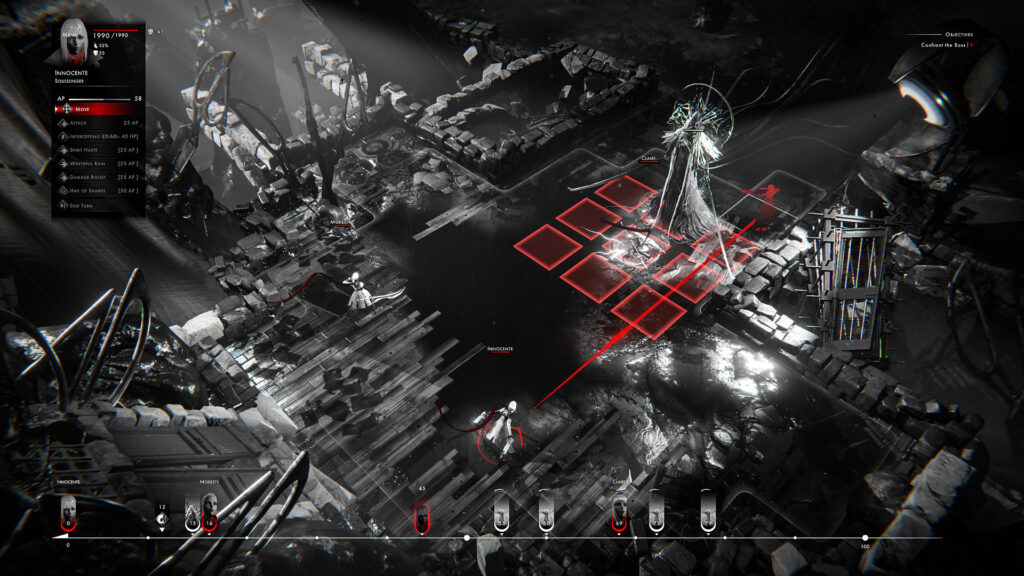
Othercide is probably best known for its black-and-white aesthetic and creepy enemies (and, of course, its array of bad-ass heroines, the Daughters). The game’s combat system is often overlooked, which is a shame because it’s rock-solid. Anyone who’s played the Exalted tabletop RPG will recognize the fundamentals. Each action a character takes delays their next turn by a number of ticks relative to how big the action was; a quick pistol shot won’t take very long to recover from, but unloading full clips from a gun in each hand will.
A typical combat situation in Othercide has the player asking whether it’s better to go all-in hoping to gain the upper hand, or hold back so the Daughters’ turns come up more frequently. This nail-biting decision becomes even more harrowing during the game’s giant boss fights. Othercide’s bosses all have plenty of ways to punish the player for overextending, such as area attacks that Daughters can’t escape from if their turn doesn’t come around quickly enough, or even manipulating the initiative bar to delay the player’s turns or speed up their own.
Of course, a well-leveled team can give as good as they get in that regard, and once the player learns to manipulate the game’s turn structure for themselves, they become a force to be reckoned with. Get Othercide on Humble Bundle
Plan, Then Execute (Broken Lines, Phantom Brigade)
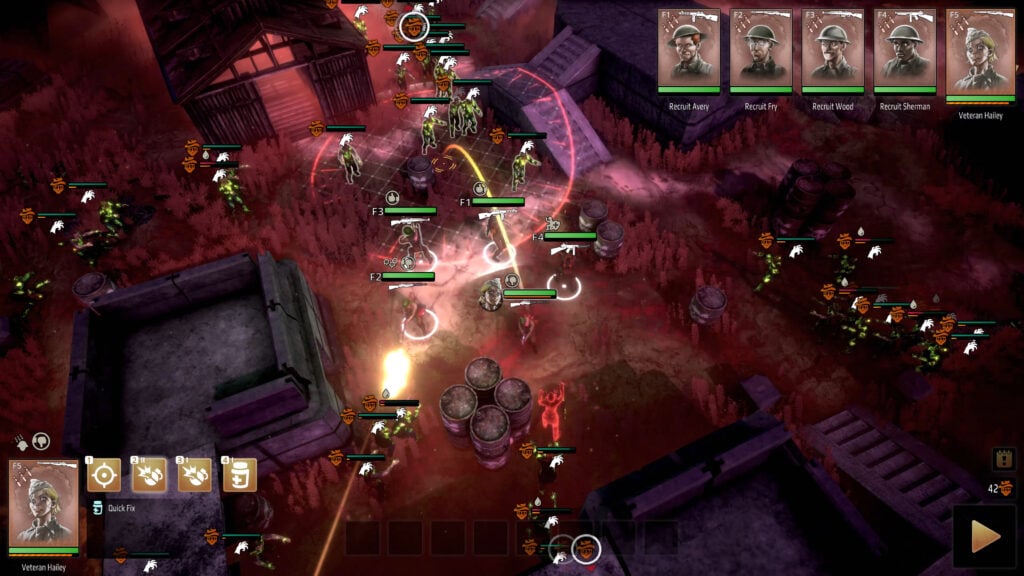
In any turn-based game, it’s important to have a plan. Whether you have a specific strategy in mind going into the beginning of the game, or you need to follow a specific order of operations on a critical turn, planning is essential to victory. Broken Lines challenges the player to plan each turn before firing a single shot – even if not everything will go according to that plan.
Once the player’s squad has been given their orders, both the player and enemy units execute in real-time. Both teams then issue another set of orders, and the battle continues. Naturally, some units will not get the chance to complete their assigned actions; a new obstacle might appear in their way, or an enemy bullet might find its mark. Knowing how much time it takes to perform each action, and preventing the enemy from achieving their goals whenever possible, is the key to success in Broken Lines.
To top it all off, Broken Lines offers a variety of squad-based engagements throughout its campaign. Guiding your World War I soldiers through the trenches will require different tactics than storming a building, and the real-time execution of your turn-based plans means there will always be a surprise waiting. No turn will ever start quite how you envisioned it when you ended your last turn, so adapt, improve, and survive. Get Broken Lines on Steam
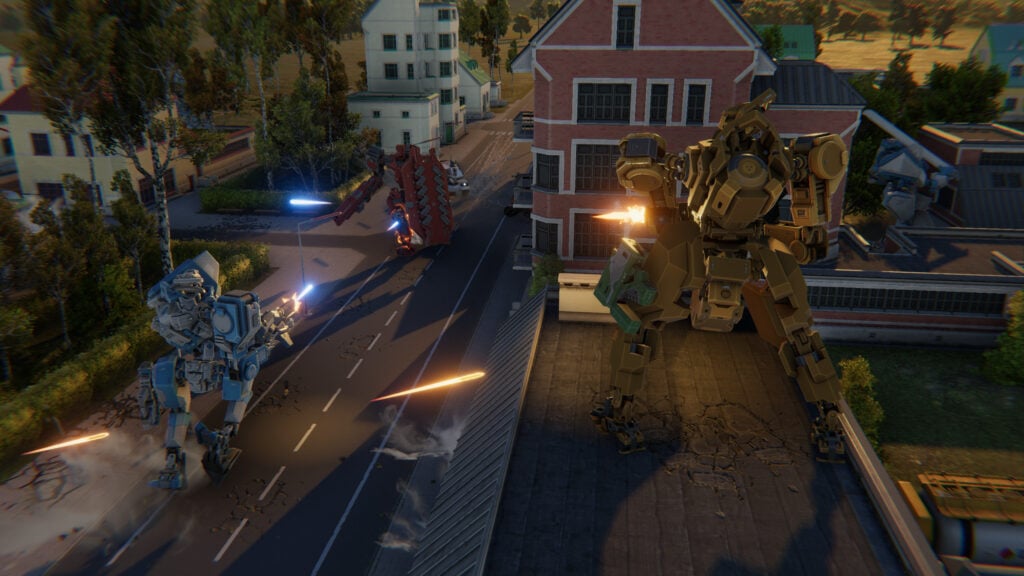
If this sort of gameplay appeals to you, be on the lookout for the forthcoming Phantom Brigade. This game will also task the player with planning outmaneuvers that their units will then try to execute, but this time it’s with giant robots stomping their way through buildings. Phantom Brigade’s Timeline mechanic allows the player to place actions on a playback bar like you’d see on a video, making it easy to develop maneuvers right down to the second. Get Phantom Brigade on Epic Store
Do you want to share your favorite games that innovate when it comes to the fine art of taking turns? Be sure to let us know in the comments – you might make someone the newest fan!


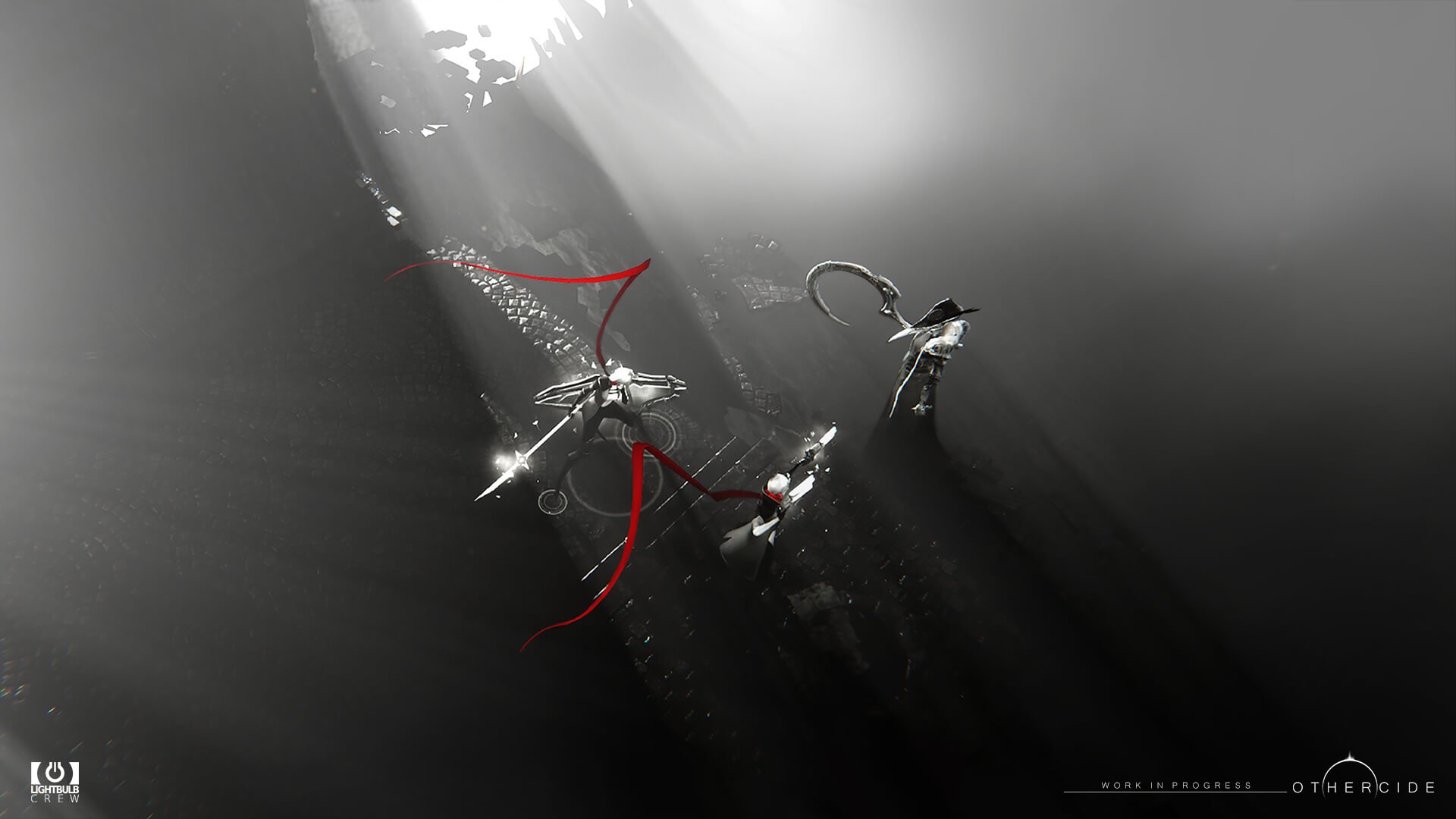







What about Neuroshima Hex?
Mega Knockdown is still in closed beta but it uses a simultaneous turn based action system to simulate the feel of a fighting game.